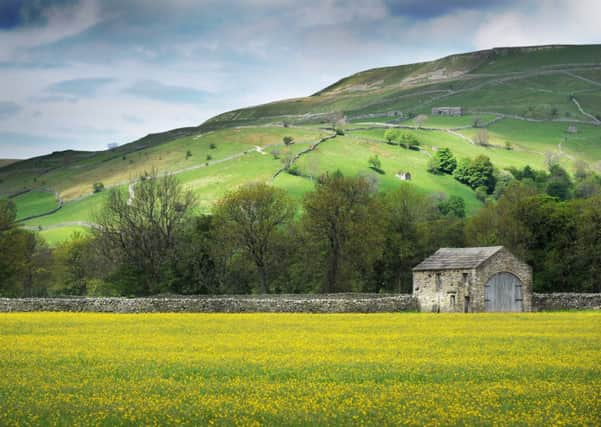Red tape relaxation could be ‘disaster’ for Dales


The character of the area’s iconic landscapes are under threat as a result of new permitted development rights, the Yorkshire Dales National Park Authority (YDNPA) says.
Rules which came into effect last May allow some agricultural buildings to be converted for commercial uses, such as shops, banks, restaurants, offices, warehouses, hotels and sports halls, without the need for planning permission, and the Government will soon decide whether to extend the relaxed rules to converting barns to new homes.
Advertisement
Hide AdAdvertisement
Hide AdThe YDNPA says the majority of planning applications for buildings to be converted for commercial uses have been permitted in the past anyway, and making residential conversions easier would have dire conequences.
Peter Charlesworth, the YDNPA’s chairman, said: “This National Park contains more barns than any other – an estimated 6,000. The Government proposals to relax the restrictions (for residential purposes) will have potentially disastrous consequences here – probably more than in any other area of England.
“About 4,000 of the barns in the National Park are located away from farmsteads, out among fields in the open countryside. Valleys full of fields dotted with these stone field barns could be transformed into a semi-urban environment with roads and overhead power and phone lines. You would have gardens, cars, washing lines, greenhouses and everything else that goes with a home springing up in some of the most stunning – and nationally protected – countryside in England.
“We understand the Government’s aims to regenerate our rural communities by making the best use of redundant and under-used agricultural buildings. But in the Dales, the proposals would have the opposite effect. The Government’s proposal would totally undermine local efforts to provide more affordable housing for local people. They would open up a flood of unconstrained, open-market housing. All the evidence of the last ten years suggests that this will just lead to more of the same: more second homes and more dream homes for retired people.
Advertisement
Hide AdAdvertisement
Hide Ad“Housing developed in this way would contribute little to meeting our local community needs. Nor would it provide the support we desperately need to hold on to our local services, such as primary schools. On the contrary, it will simply increase the pressure on services already struggling to cope with a disproportionately elderly population.
“Barn conversions tend to be very expensive and are more likely to deliver ‘second homes in the fields’ than an affordable ‘Home on the Farm’. The proposals are bad for the landscape and bad for local communities and, quite frankly, they make a mockery of the Government’s claim to be supporters of localism. We believe these proposals will cause irreversible harm to the special qualities of this National Park; and will completely undermine attempts to provide affordable housing for the local people in it.”
To date, under the relaxtion of rules for commercial uses, only one application has been made in the Dales - for the change of use for part of a pub to be converted into a shop. But the YDNPA is keen to remove the new rules within the Dales’ boundaries and is consulting the public on whether to make a non-immediate Article 4 Direction under the Town and Country Planning (General Permitted Development) Order 1995 to remove permitted development rights relating to commercial uses from 19 January 2015.
Meanwhile, it has written to the Government to argue that the removal of the need for planning permission for residential conversions conflicts with its own National Planning Policy Framework and the YDNPA’s Housing Development Plan policies.
Advertisement
Hide AdAdvertisement
Hide AdBut Dorothy Fairburn, regional director for the Country Land and Business Association says forcing farmers to go through expensive and time-consuming full planning applications is too heavy-handed: “The National Park has a good record of working with farmers and landowners to approve applications, with few amendments to schemes, so the question has to be asked why we need this unnecessary additional cost and layer of red tape?”